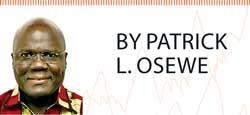
Economies across Asia and the Pacific—like in much of the world—have been hit hard by the coronavirus outbreak. To slow the spread of the virus, many governments have chosen to impose lockdowns and travel bans. While vital, these measures have also had severe economic impact. The Asian Development Bank estimates that Asia is likely to lose 68 million jobs, if the pandemic goes on until September.
With vast uncertainty about the possible health and economic outcomes of the virus over the coming months, experts in public health and epidemiology are urging countries to prepare for a second wave of infection. This means that countries must grapple with how to balance virus containment with national economic interests—not only now but possibly again in the future.
Drawing on a rapid review of recent evidence, we have summarised below the key issues for countries to consider as they restart their economies. They can be categorised into two main priorities: when to restart and how to restart. Applied early enough, the findings below may help some countries in the initial stages of an outbreak to avoid the need to shut down and restart their economy altogether.
While no country can expect zero new coronavirus infections in the foreseeable future, the World Health Organisation suggests six conditions that countries should aim to meet before they end their lockdowns. These include having sufficient capacity to ensure that COVID-19 transmission is under control; diagnose, treat and isolate all cases; protect vulnerable populations from potential outbreaks; establish preventive measures in schools, work settings and other essential places; manage imported cases and empower communities to live under a ‘new normal’—including maintaining social distancing, wearing facemasks, staying at home when sick with flu-like or COVID-like symptoms.
With countries in the region at different stages of the pandemic, several useful lessons have emerged about when to end a lockdown and reboot the economy:
Rebooting too early: A number of countries are considering dialling-back their restrictions, ending a lockdown prematurely—or without appropriate plans in place. This can start a cycle of new infections.
Rebooting while keeping disease at bay: Some countries gained an early edge and managed to keep the virus under control by acting swiftly. Both Thailand and Viet Nam used their early start to slow disease transmission through extensive surveillance, monitoring, contact tracing and isolation strategies.
Rebooting after an extensive outbreak was controlled: The People’s Republic of China was able to stabilise COVID-19 infections after an extensive outbreak by identifying (i.e., testing) and quarantining infected individuals as quickly as possible.
Amid COVID-19, how do we safely restart the world’s economies?
For those coronavirus-stricken economies grappling with how to lift their lockdown, many experts in public health and economics also agree that a gradual or ‘phased’ approach that embraces flexible strategies for different regions or sectors (depending on their readiness) is best. Some early findings from the People’s Republic of China indicate that a systematic and phased approach in easing lockdown and restrictions—including classifying areas according to risk (low, medium and high)—has so far maintained efforts to curb the pandemic and keep a second wave of infections at bay.
The following seven questions were designed to help governments think about how best to prepare for a phased reboot of their economies:
1. Are there fiscal policies in place to provide income support, ensure access to safety net programmes and/or support small business needs? For example, the Republic of Korea increased allowances for homecare and job seekers while the People’s Republic of China temporarily waived social security contributions for businesses.
2. Which sectors should be reopened first? For example, does the country start with the sector with most value to the economy like manufacturing and farming—while still maintaining public health measures? Do they keep closed those sectors with potential risk of infection such as entertainment and sports activities?
3.What areas/sub-regions/communities/cities should be opened first? For example, is there a strategy in place for areas and communities with crowded living conditions in order to avoid an outbreak?
4. What kind of travel will be allowed upon opening? For example, does the country allow domestic travel within the country or restrict domestic travel (e.g., urban to rural) to avoid outbreaks in previously COVID-free areas?
5. When and how should transport be reopened? For example, in Istanbul, local government provides free public transport for healthcare workers and pays the fuel and staff costs of privately-owned busses to subsidise public transport.
6. What social restrictions should be lifted and when? For example, does the country ban public gatherings or limit them in size (e.g., 50 or 10 people) in public and private places?
7. When should schools open (nurseries, schools and universities)? Does the country open schools sooner as this will influence when parents are able to resume work?
Because of the unprecedented nature of the COVID-19 pandemic, governments will continue to grapple with tremendous uncertainty—and considerable social and economic turmoil. Using these considerations as a guide, policy leaders can make better, more-informed decisions when it comes to getting their economies—and their countries—back on track.
(Dr. Patrick L. Osewe is currently the Chief of the Asian Development Bank’s (ADB) Health Sector Group, providing leadership on all Health Sector Group technical and operational matters)

 Economies across Asia and the Pacific—like in much of the world—have been hit hard by the coronavirus outbreak. To slow the spread of the virus, many governments have chosen to impose lockdowns and travel bans. While vital, these measures have also had severe economic impact. The Asian Development Bank estimates that Asia is likely to lose 68 million jobs, if the pandemic goes on until September.
Economies across Asia and the Pacific—like in much of the world—have been hit hard by the coronavirus outbreak. To slow the spread of the virus, many governments have chosen to impose lockdowns and travel bans. While vital, these measures have also had severe economic impact. The Asian Development Bank estimates that Asia is likely to lose 68 million jobs, if the pandemic goes on until September.
